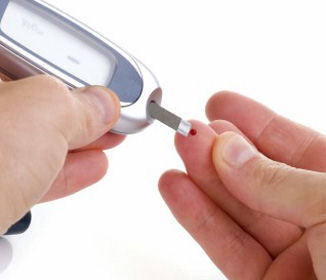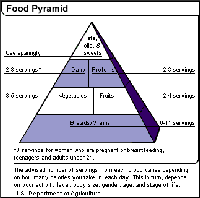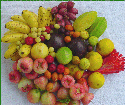
|

|
 |
| Follow us online |
| |
|
DIABETES Natural Treatments and Prevention from AMAZON HERBS®  |
|
Diabetes mellitus affects more than 20 million
people in the USA alone and many more have pre-diabetes. Every year 1.3 million new cases are diagnosed in people 20 and older! It is serious disease and one of the leading causes of death (the 4th) and the most common cause of kidney failure in this country. Although many people have diabetes, they do not even know it. It is estimated that two out of three people with type 1 or type 2 diabetes will die from a heart attack or stroke; the combined leading causes of death among diabetics. There are two main types of diabetes mellitus: Type 1 and Type 2. However, there are also other types: gestational diabetes (occurring during pregnancy in women) and diabetes insipidus (excretion of large amounts of dilute urine). Each of the forms is distinct. People having type 1 diabetes (used to be called juvenile diabetes) have no ability to produce the hormone insulin* (controls the glucose level in the blood). They must take daily insulin shots; the pancreas, where the insulin is produced, is not functioning anymore due to the destruction of Beta cells in the lslets of Langerhans. However, other hormones (glucagon, adrenaline and cortisol) also have effect on the glucose (blood sugar) level. They all work together to maintain a normal level; that is, if everything is in order. Glucose is a sugar that the body uses for energy; as a result of the disease it stays in the blood causing the level of the blood glucose to rise. It is thought that Type 1 diabetes, the most serious form of the illness that typically first appears in childhood, is solely caused by auto-immune responses (the body's immune system turning on itself). New research suggests though that the body's nervous system helps trigger diabetes and that there are far more similarities than previously thought between Type 1 and Type 2 diabetes. The study suggests that these two illnesses are quite similar. Type 2 diabetes, accounting for most of the cases (90 - to 95 % in the USA), is called non - insulin dependent diabetes (NIDDM). In the vast majority of cases it develops after age 45. Research suggests NIDDM is caused by diet - and lifestyle. There are no insulin injections necessary to stay healthy since the pancreas still produces some insulin. Many patients with this type can be treated with a tailored diet, exercise and medication or dietary supplements. However, some may need to take small doses of insulin to control the blood glucose level; although this therapy is rejected by some physicians who qualify this as making it worse since persons with Type 2 diabetes produce the insulin and giving more will do nothing about the body’s capability to absorb it. Besides insulin there are other hormones playing an important role in controlling diabetes; one is the hormone leptin, it tells the body and brain how much energy it has; whether it needs more (hungry) or whether it should get rid of some (stop being hungry) and what to do with the energy it has. An insulin injection is not a cure for diabetes and cannot prevent many of the side effects, from heart attacks to kidney failure. People with this disease can develop complications. That's why those with diabetes must control their blood sugar to avoid complications for the near - and long term. The risk for developing complications can be lowered by keeping the blood sugar (glucose) levels as close to normal as possible. According to the fasting plasma glucose test (measured after a fast of 8 hours), normal means between 72 - 125 mg/dl (4.0 - 6.9 mMol/L). Levels equal or higher than 126 mg/dl (7.0 mMol/L) are considered diabetic. People with levels of 126 - 140 mg/dl (7.0 - 7.8 mMol/L) tend to develop the medical complications associated with diabetes. A constant high level is referred to as hyperglycemia. Levels of 110 - 125 mg/dl (6.1 - 6.9 mMol/L) are referred to as impaired fasting glucose (pre-diabetes): individuals with these levels have an increased risk of developing Type 2 diabetes. It develops slowly; some people with high blood sugar have no symptoms. However, better control of blood sugar, cholesterol, and blood pressure levels in persons with diabetes helps reduce the risk of kidney disease, eye disease, nervous system disease, heart attack, and stroke. |
|
Warning Signs and Symptoms |
; Living With Diabetes Diabetes is very often linked to 2 other diseases: hypertension and high cholesterol
levels.
Diabetes is very often linked to 2 other diseases: hypertension and high cholesterol
levels.Keeping these 3 factors, blood glucose, blood pressure and cholesterol levels, within ranges is very important to reduce the risk for diabetes-related complications such as heart attacks, strokes and vascular diseases. Cut back on your sweeteners (sugar, grape concentrate, corn syrup, fructose, sucrose, lactose and maltose) intake. Sugar increases LDL cholesterol and triglycerides. Development of Type 2 diabetes can be prevented or at least, significantly delayed. Type 2 can be regarded as a modern nutritional disease. Modest changes in diet and exercise can, over time, substantially lower the risk of developing the disease. Diabetes Is more a disease of nutrition than anything else! Important is to listen to your “have enough” signal so that you do not bulk up with food you do not actually need. Pay attention to nutrition and diet, watch the carbohydrate** (carb) intake and eat fruit and vegetables daily and go for whole grains! All foods that contain starches and/or sugars (fruits, vegetables, milk, breads, grains, beans included), contain carbs. A low-carbohydrate diet can work wonders. There are fiber and non-fiber carbohydrates; fiber is good, non-fiber is bad. Fibrous carbs such vegetables are very good.  Since diabetes can be triggered by just 10 - 20 pound of excess weight, it is important to lower the body weight.
Since diabetes can be triggered by just 10 - 20 pound of excess weight, it is important to lower the body weight.This obesity epidemic has even led some children to develop type 2, which previously almost only adults got. However; doctors are now seeing kids with double diabetes (both type 1 and 2). Once more, it is important to limit the intake of sugar and foods that turn into sugar. Your M.D. or other health provider may prescribe standard medication for diabetes such as: Tolinase® (tolazamide), Orinase® (tolbutamide), Micronase® (glyuride), and Glucotrol® (glipizide). Not being very effective, they do not adequately control blood sugar in a significant percentage of cases and even for those who respond well, the effects may wear off over time. 
Glucophage® (metformin) is a very popular drug for diabetes, which improves insulin resistance but since it also reduces the levels of vitamin B12 and folic acid and increases homocysteine (an amino acid) levels, it may also increase the risk of heart disease. The diabetes drug AVANDIA® (Rosiglitazone) has been linked to an elevated risk of heart attack and even worse! Herbal Dietary Supplements Certain herbal dietary supplements (botanicals) can be used as part of the diet to maintain healthy blood sugar levels. Natural medicine cannot cure Type 1 diabetes but it may help by making the body more receptive to insulin injection. It is very important to work closely with your physician who prescribes the insulin, before using any of these herbal supplements. Changes that make the body more receptive to insulin could also require certain changes in the dosage that must be addressed by the medical professional. When Type 2 diabetes is involved, the body often makes enough insulin; the body however has trouble absorbing it. Type 2 reacts well to natural medicine but making diet change should also be discussed with the treating physician. Patients with diabetes often have high blood pressure (hypertension). With all the research going on in recent years it is clear that controlling blood pressure and cholesterol levels are just as important as doing this with blood sugar. Visit our hypertension - and cholesterol page for more information on controlling blood pressure and cholesterol.
There are many tropical botanicals & herbs, that can be successfully employed against diabetes. TREATING DIABETES WITH HERBAL DIETARY SUPPLEMENTS NATURALLY |
|
***Properties: ***Properties: ***Properties: ***Properties: ***Properties: ***Properties: ***Properties: ***Properties: ***Properties: |
| TROPILAB® INC. P.O.BOX 48164 St.Petersburg, Florida 33743 - 8164. USA. Phone: (727) 344 - 7608 |